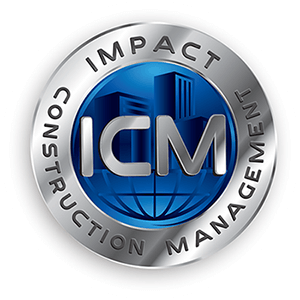
It may surprise you to learn that one of the highest-trending topics for project management is not related to technology, or budgets, or even construction. On the contrary, this trend may be something you never considered, even though it is a vital component to your success. It’s called Emotional Intelligence, and if you are not already familiar with this concept, read on to learn what it means and why it’s so important to your team.
What It Means
Emotional Intelligence (EI) is defined as “the capacity to be aware of, control, and express one’s emotions, and to handle interpersonal relationships judiciously and empathetically.” In short, EI is all about the way you process and express your own emotions, while also navigating and understanding the emotions of those around you. It may seem like an obvious concept, but the idea of recognizing and developing Emotional Intelligence has become one of the most important skills that project managers need to learn.
Psychologist Daniel Goleman outlines the five areas of Emotional Intelligence: Self-awareness, self-regulation, motivation, empathy, and social skills. These five factors combine to create an overall level of Emotional Intelligence that guides the way you interact with your project team. Each person will differ in the area where they find the most success, but the smart project manager will assess him- or herself in each area to determine where they can improve the most.
Why It Matters
You already know how vital your team is to the success of any project. But it’s one thing to appreciate the value of a team, and another to lead your team in an efficient manner that motivates each team member to do their best work each day. You can use Emotional Intelligence to help your team find success in each project.
Creating Understanding
Imagine you are in the middle of a long meeting regarding some delays on your project. Tensions are high, but you have an opportunity to guide your team to a more successful meeting by employing some (or all) of the areas of EI.
Take the area of empathy – can you relate to the frustration of your team? Can you help them understand the other side of the argument? Do you know that one team member responds better to constructive criticism in person, while another does better if you send feedback over email? By discovering these seemingly small details, you can create an environment that encourages new ideas and innovative solutions.
Establishing Leadership
Your team is looking to you to set the tone of your project. Will you be the type of leader who handles disappointment and setbacks well? What can your team expect when they come to you to admit a mistake? A good leader understands the value of creating an environment that motivates team members to perform their tasks to the best of their ability, no matter how repetitive or tedious the task may feel.
This is where the areas of self-awareness and self-regulation come into play. You need to be aware of the ways you react in different types of situations, and practice techniques for regulating yourself when you feel your reactions may negatively impact your team.
Motivating Team Members
You can probably recall a dozen examples where, in a previous job, your boss made it clear that you were underperforming and he or she was not happy with you. No one thrives in an environment where they feel they are unsuccessful and disliked. But as you lead your own team, you can utilize the areas of motivation and social skills to propel your team members forward through the project.
Lead by example and be a team player, showing your people what it means to work together as a group. Let your determination for a job well done serve as a motivator for your team to work together as efficiently as possible. Give praise where it is due, and take the time to find out what inspires each person on your team to victory.
Emotional Intelligence may not be the first thing you think of when you consider the qualities of a successful project manager. But the research doesn’t lie: Understanding and incorporating EI into your management style will lead to a more efficient team that is highly motivated to make your project a success.
About Impact Construction Management
Headquartered in Indianapolis, Indiana, Impact Construction Management is a full-service construction management firm. Founded by Louis Buonaiuto and Richard Bowlin, Impact Construction Management has been managing construction projects for clients throughout the Midwest and South for over 10 years. From our very first project to today, our focus has been on delivering the results our clients want by providing responsive service, up-front pricing and the highest-quality workmanship.


Write a comment:
You must be logged in to post a comment.